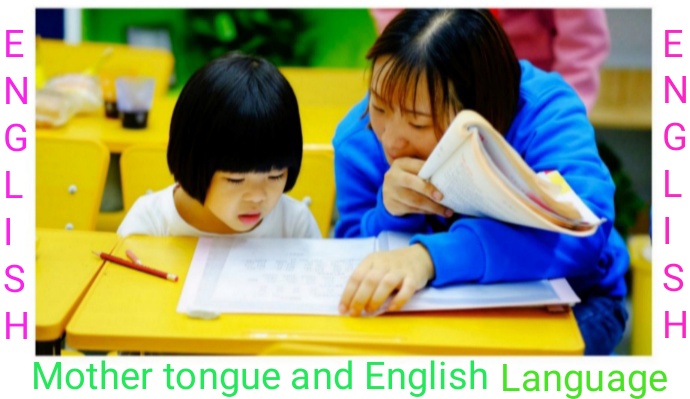What are Definite And Indefinite Articles?
Learning English grammar can be useful. There can be many rules, there can be many exceptions and sometimes there can be uncertainty. I got some good news though. There is a field of grammar where there are only three very little things to keep track of and you are already familiar with them. It is only a matter of learning to avoid the common mistakes that people make in the case of definite and indefinite articles.
What is An Article?
An article is a word that goes before a noun, giving some basic information about the noun, such as if it's singular and plural, or if the object is specific or general. The English articles are a, an, some, and the.
Types of Article:
- Indefinite Article. A, An
- Definite Article. The
What is An Indefinite Article?
An indefinite article is a part of speech that identifies an indefinite noun. "A" and "an" are the only indefinite articles.
Indefinite Article Examples:
- There’s a dog in the garden!
- I need a stamp for this letter.
- Alex is an accountant.
- He works for a multinational company.
- We need an apple and an orange for the fruit juice.
- Is there a whiteboard in the school classroom?
- My brother drives a lorry.
- Rule- 1. If there is a consonant at the beginning of the word, then a and vowel (a, e, I, o, u) precede an. Example: A hen, A boy, A pen, An egg, An apple.
- Rule- 2. If the first letter of the word has 'h' and if it is pronounced correctly, then it sits before a. Example: A horse, an historian. And 'h' is not pronounced correctly before that sits an. Or Example: An honest, an hour.
- Rule- 3. If there are Vowels at the beginning of the word and it is pronounced like (u), then a sits before that. Example: A ewe, A European, A uniform, A University, A useful metal, A unique position.
- Rule- 4. All words composed of (o) sit before an. Only one of the associated words sits a. Example: An open field, An open heart surgery, An open door, An orange. A one-taka note, a one-eyed man.
- Rule- 5. The first letter of the acronym is pronounced like Vowel-before that sits an. Example: An M.A., An F.R.C.S., An F.C.P.S. Rule-
- 6. Indefinite Article (a/an) sits before the Singular Common Noun to explain to one another all. Example: A dog is a faithful animal. An ant is industrious.
What is A Definite Article?
A definite article is "The". "The" refers to a special noun that is understood. The visitor is aware of the reference object and no further identification is required.Definite Article Examples:
- You can’t go to the school office now.
- Can you turn on the radio?
- The shopping bags are still in the car now.
- Where is the bottle-opener?
- The students are waiting for the lesson to begin.
- The new washing machine is broken.
- The presentation is ready for you to check Mr. Alex.
- How is the weather in your country?
Use of Definite Article: The
- Rule- 1. The sitting before a particular person/object. Example: The girls are playing. The girls are reading.
- Rule- 2. The One Sitting Before the Common Noun Singular to explain to all people. Example: The cow is a useful animal. The rose is a nicely flower.
- Rule- 3. The river sits before the names of rivers, seas, bays, mountains, islands, ships etc. Example: The Andaman. The Himalayas. The Pacific.
- Rule- 4. The name sits before the date. Example: The 8th of December. The 21th of may.
- Rule- 5. The Comparative Degree of Adjective before the Comparative Degree of Adjectives. Example: Rani is the better of the two girls. She is the best girl in the class. She joined the army.
A. Read The Text and Notice The Word In

An excellent painting of the sea is hanging from the wall while another small painting is kept on the top of the left side-table. The room has a rocking chair and a sofa at the right corner. The windows are covered with large heavy curtin. Can you see a mask somewhere around the bed?
The bold words in the passage are examples of article in English. Can you find out any principal or rule about the use of a, an and the in the passage Use of article.
- We use a/an to talk about something for the first time. e.g a bed-cover, a rug, a rocking chair, a sofa, a make In the lesson above when the speaker uses any singular countable noun, she/he uses either a/an before that.

- We also use a/an to refer to something unspecified, e.g. not particular or specific. She bought some apples from a shop in the new market. In this sentence the shop in the new market is not specific as there are many shops in the new market. So, article has been used before that.
- A is used before consonants and 'an' is used before vowel.
- A is used before vowel 'U' when it's pronounced as 'you'. As, a university, not an university.
- An is used before consonant if the first 'h' of a word is silent : an hour, an honest man etc.
- We use the when we refer from something for the second time. e.g. This is Sama Ahmed's bed room. The room is very neatly made. (room:1st time) (room: 2nd time)
- We used the when we refer from any person/object specifically. e.g. There are few windows in the room. The windows are covered with large heavy curtain. In the second sentence, the windows are specific in the sentences : which windows the speaker is referring to? The windows are the windows of Sama Ahmed.
- We also use the from refer from something that has no alternative. e.g. The sun is the source of energy in the earth.
Exercise:
B. Fill in the blank spaces with a, an, the, or cross (x) mark
- ____ motor vehicles and ____ greenhouses cause pollution and it damages _______ environment.
- All pollutions are bad but ____ pollution we cause in ___ water is perhaps the worst.
- I love watching ____ movies. _____ movies are good sources of entertainment. Last week I saw a movie ____ Tory. That was fantastic.
- _____ Honesty and _____ sincerity are three great qualities of human life.
- However, sometimes it appears that _____ honesty and ______ sincerity our farmers are showing everyday aren't evaluated.
- I am a food taster. I like even _____ food of small ethnic groups. Last time _____ foods I tried in Rangamati and Khagrachari were great.
- ____ world is yet to ensure ___ food for all.
- My brother is studying ____ history. His special interest are ____ history of the Farah and ___ history of ___ post-Communist Ear.
C. Explain what all these people do Follow the pattern given here
- ____ writer ___ farmer ___ tour. Guide ___ pilot ___ cabin crew ____ nurse ____ teacher ___ advocate ___ administrator ____ police ___ performer ____ singe ____ reporter.
D. Practice Article
The Adjective which is used before a noun to indicate noun definitely or indefinitely in the sentences is called Article. The sounds a, an and the are usually called Article. They are called Article as they've some special significance as the parts of speech.
- Mr Rahim is ............. European.
- You are .............. Nazrul, I see.
- He has eaten ............... egg.
- Our English teacher is ...........M.A.
- He is .................... M.B.B.S.
- Smith is ....... best boy in ...... class.
- Jone joined ................. army.
- He bought ................. pen.
- The girl took ............ egg.
- A dog is ........... faithful animal.
- The rose is ............ nice flower.
- Forgiveness is ......... great virtue.
- Cricket is ............ favourite game.
- Football is played all over ....world.
- Nishu is the better of ..... two girls.
- He's honours graduate person.
- Kalam reads Observer daily.
- I could see nothing but sky.
- Maghna and Tista are very fast train.
- Dhaka is old city in Bangladesh.
- Rahim is good player.
- Rani is better of the two girls.
- I say my prayers five time few day.
- She is ten years old girl.
- Imran come here to tell news.
- There is little water in the glass.
- Good many people witness the football.
- I've bought dozen of bananas.
- Many boy was present in the class.
- The crow is rather ugly bird.
- Not the single man was present in the meeting.
- I saw a man on the street.
- There are a few books on a table
- An old lady came to our house yesterday.
- The man is moral.
- He reached the Canada from France.
- I met an one-eyed man.
- He's the justice of the peace.
- He has a rad and the blue car.
- He's a smart and intelligent boy.
- I've a nice and costly pen.
- There are a thousand people in a train.
- An honest man leads poor life.
- Everybody should check the beast in him.
- Alexander the great was an brave warrior.
Use of Articles A, An, The And (x)
★ Use articles only where needed:- I've in Canada. My elder brother who is ____ engineer, works in U.S.A. Last summer he asked me to stay _____ few days with him and sent me _____ plane ticket. That was my ____ first journey by _____ plane. I arrived at ____ airport about ____ hour before ____ flight. It was ___ enjoyable plane __ journey.
- ____ friend in need is ____ friend indeed. A true friend is ____ asset. He stands by his friend in ____ time of ____ danger. He always wishes for ____ welfare of his friend. He never misguides ____ friend to ____ path of violence and dishonesty. But it's ____ matter of sorrow that ____ real friend is very rare nowadays.
- People consider ____ poverty _____ great evil and it seems to be ____ accepted belief that if people had ____ plenty of money, they should be happy and ____ useful and more out of life. As _____ result, there is more genuine satisfaction in life and more obtained from life in ____ humble cottage of ____ poor men than in ____ palaces of ___ rich.
- Punctuality is ___ unique virtue. It leads ___ man to ___ path of success, ___ punctual man does all his works in ____ due time. He never stops working for ___ tomorrow. So it is our duty to acquire ___ quality of punctuality in our life. Everyone respects ____ man who is punctual, ____ unpunctual man faces many problems in his ____ life.
- One day I meet ____ lame man. After talking for a while he showed me ____ identity card. Seeing ____ identity card I come to know that he was ____ university student. After completing his ____ study he joined ___ army. During the Liberation War he fought ___ bravely against ___ occupying army of then West Pakistan. But it's __ irony of fate that a bullet of ____ enemies hit on his left leg. Thus, he lost his leg.
- Rainy season is one of ___ most enjoyable seasons in ___ Bangladesh. It rain almost all ____ day long. Everybody becomes ___ poet on ___ rainy day. But ___ poor people suffer much on this day. ___ Floods occur during ___ rainy season. None can avoid ___ impact of ___ rainy season.
- ____ discipline is seen in ____ nature. Every morning, ____ sun rises in ____ east, day following ____ night, birds sing and ____ plants blossom. Everywhere in ____ nature there is ____ harmony. In case there was no discipline in ____ nature, there would have been ____ chaos everywhere.
- Each and every student wants to make ___ good result in ___ examination. But it is not ___ easy task,___ student has to do something with this end in ___ view. From ___ very beginning, he must be ___ very serious. He should read ___ texts again and again. He must not make ___ notes from ___ common source.
- Once upon a time, ___ dove and ___ bat were ___ very good friends. One day ___ two friends decided to set out on ___ journey. They flew over ___ rivers and ___ hills and came to ___ big jungle. Both ___ friends were very tired, they needed to sit down and take ___ rest.
- Bangladesh is no doubt one of ___ poorest countries in the world, having ___ few enemies, ___ countries encircling her are not much richer than she. They've ___ little to do about our internal affairs. Our large population is rather ___ burden than ___ asset. But it's ___ fact that ___ days are not very far when we will be ___ able to win in ___ race with many other countries.
- ____ best way of knowing ____ man is to know what company he ___ keeps, ___ thief usually associates with ____ thief and ____ saint with ____ saint, ____ righteousness can have no _____ fellowship with_____ unrighteousness.
- A library is ___ part and parcel of ___ educational institution. It is ___ unique place where books on various subjects are kept for ___ reading. It enables ___ readers to read books of their choice that creates ___ enthusiasm for learning. Learners should pay ___ visit to ___ library regularly. They can borrow books for ___ certain period and return them later ___ given time.
- Patriotism is a noble ___ virtue. It inspires ___ man to shed last drop of blood to defend the freedom of his ___ country, ___ man without patriotism is as good as ___ animal. A true patriot is honoured by ___ all. He thinks for ___ welfare of his country. On ___ other hand, ___ unpatriotic man thinks only of his own interest. Those who die for ___ country are the true patriots. They are remembered even after their death.
- ____ crow saw ____ piece of meat. It took ____ meat in its mouth. It sat on ____ branch of ___ tree to eat ___ piece of ____ meat, _____ fox was looking for ___ food. He came under ____ fee.
- Ours is ____ country of rivers. Some of ___ ricers are ____ famous. But some of ____ big rivers have drived up. They go ____ dry especially in ____ summer season. Then we have to face ____ extreme situation. But during ___ rainy season all __ rivers are full to ____ brim.
Example Worked Out of Articles
Fill in the gaps in the following text with appropriate article (a, an or the). Put a cross (x) where no article is used.
- My neighbour is ___ old man. He always speaks __ truth. He knows that __ everybody loves __ truthful person. He also knows that _____ nobody believes ____ lair. He has ____ cultivated this habit from _____ very beginning of his ____ life. So, he's respected by ____ all.
- Truthfulness is ____ greatest of all ____ virtues that make ____ man really ____ great. If ____ we do not cultivated ____ habit of speaking ____ truth, we ____ cannot command ____ confidence of ____ others.
- Our life is ____ sum total of hours, days, months and ____ years. But all ____ days are not ____ equally memorable for us. Most of ____ days are forgotten with ____ passage at time. Only ____ few days remain ever ____ fresh in our memory. My first day at ____ school is such ____ amusing day.
- Once I went to ____ mango orchard. One of ____ my friends was ____ owner of ____ orchard. While walked I found ____ mango lying under ____ tree, ____ mango was ripe. Seeing ____ mango in ____ my hand, my friend said, "It will taste ____ sweet".
- The main aim of ____ education is not only to pass ____ exam and get ____ good job but also to gain ___ knowledge and widen _____ third eye. ____ ideal student should realize ___ real fact. Otherwise, ___ purpose of ___ education will be ___ incomplete one.
- Drug addiction is now ___ global problem. It has ___ spread its poisonous claw all over ____ world. Frustration is ___ main cause of drug addiction. Drugs bear ____ terrible effect on ____ human body. It kills ___ man little by little. No physician can stop ____ changes that take place in ___ organs of ___ addict.
- English is ____ international language. It is spoken all over ____ world. So ____ importance of ____ English cannot be described in ____ words. All ____ books in higher education are written in ___ English. Today ____ organizations need employees who can speak and write ___ standard form of ____ English.
- A true friend is ____ asset. He stands by his ____ friend in time of danger. He us not ____ greedy man. He always wishes for ____ welfare of his friend. But it is ____ matter of ____ fact that ____ ideal friend is very rare today, ____ selfish man cannot be ____ true friend. He think of his own ____ interest.
- Money cannot buy ____ happiness. Money is ____ must for our life. But it is not ____ necessary to bring our happiness. Happiness is absolutely ____ psychological thing. It is ___ name of ___ feeling. It means ____ contentment of the mind.
- He who is satisfied with what he gets and is cannot with his life is ____ is happy. Happiness can't be purchased with ____ money. No doubt, money has got something to do with ____ happiness, but it cannot give us real happiness.
- It was ____ dark night. A blind man was walking along ____ road with a lamp in his ____ hand. Two men laughed at ___ blind man. One said, What's ___ use of ___ lamp to a blind man? The other called him ____ fool. The blind man heard this and said, "It's for those who are ____ careless." "What ____ surprise," said ____ others.
- Though newspaper is not always ____ unmixed blessing yet it is ____ most useful thing in modern life. We cannot think of ___ day without it. To read newspaper is ____ good habit, ____ more we read newspaper, ____ more we can acquire knowledge. If we don't read it, we will be like ___ frogs in ____ dark well. It is ____ looking glass of ____ modern world.
- Smith is ten. He is ____ uneducated boy. He is also ____ orphan. He works as a domestic help in the house of a rich ____ man. The owner of the house is not ____ unkind man. Smith does ____ household activities. He is a faithful ____ servant, ____ other members of ____ family behave well with him. When all ____ members of the house go outside, they leave ____ keys with him.
- Poverty is ____ acute problem in ____ developing country like Bangladesh. Many people live below ____ poverty line here. They regard ____ poverty as ____ great evil. It degrades ____ dignity of ____ individual as well as ___ nation. But __ poverty alleviation is ____ challenging task.
- ____ Olympic Games started ___ long before ___ Christian era. There is ___ village in Greece named ____ Olympia. This has been named after ____ Olympia. Today the Olympic Games have become ____ extra ordinary event in the world. In 2008, the Games were held in Beijing, China. That year China bagged __ highest gold medals in various events. This was ____ usual incident for ____ host country.
- Jackfruit is _______ national fruit of Bangladesh. It's ____ largest of all fruits and is abundantly grown in all ____ parts of ____ country. It's __ seasonal fruit which usually ripens during summer, ____ fruit has ____ prickly skin outside but its ____ tasty flakes are arranged inside, _____ climate in Bangladesh is suitable for ____ cultivation of the fruit.
Omission of Article
In cases where the article is not used
The determinants that are used to identify a noun, except a, an and the, are- my, your, his, her, our, their, that, those, some, most, one, two, many, much, few, what and both etc. Remember that we don't use a, an and the when we use these determiners.
- This article or section doesn't cite its references or sources.
- Articles are not usually used before proper names.
- Article is not usually used before Abstract Noun.
- The article is not usually used before the material noun.
- Articles are not usually used before parks, buildings, roads, schools, hospitals and markets.
- The plural noun article is not used in the general sense.
- Article is not usually used before language names.
- Usually the names of some diseases, arts, sciences and subjects are not used before the article.
- The article is not usually used before the name of the game.
- Article is not usually used before the names of donations, months and seasons.
- The article is not usually used before the name of the festival.
- The article is not usually used before the idiomatic phrase.
- Article is not usually used before the adjective word.
- No article is used in compound words.
- I am fond of a tea.
- She/He likes x milk.
- He/She lives in in Dhaka.
- Rina goes to to collage everyday.
- They went to x university.
- We went to x children's park.
- She reached x Kaptan bazar.
- She may invite you to x dinner.
- I shall invite you to x lunch.
- She can play x football.
- You can't play x cricket.
- They live x from hand to mouth.
- She left the place x bag and baggage.
- They began to work x at once.
- I am x innocent.
- He is x honest.
- It is a world x map.
- x Cows are gentle animals.
Use of Articles A, An and The
(A) Some examples of usage- This is a unique game.
- I saw a one legged man in the street.
- Rice sells ten taka a seer.
- It is too difficult a book for me.
- What sort of a man is he?
- He is a Deniel in wisdom.
- Iron is a useful thing.
- Doctor says it is a hopeless case.
- What a beautiful scene this is!
- He was successful as a teacher.
- The vacation has come to a class.
- This is a secret between you and me.
- The cow is a gentle animal.
- Half a loaf is better than no loaf.
- Let us enjoy a one act drama.
- There is a university in Canada.
- Mr John is a great scholar.
- I went out for a walk.
- Is he not driving a car?
- I bought a dozen of pencils.
(An) Some examples of usage
- He is an honours graduate.
- He spent an hour with us.
- His brother is an honest man.
- He is an able and efficient teacher.
- I am in need of an N.O.C.
- He got an X-mas present.
- Mr Smith is an honourable man.
- There was an egg is the nest.
- I cannot do it in an hour.
- She is an untidy girl.
- He seems to be an idiot.
- French is an easy language.
- This is an irony of fate.
- An H.S.C. wanted for the past.
- He looks as stupid as an owl.
- The game came to an end.
- An Smith is not born in all ages.
- He is an upright woman.
- He is an honorary Magistrate.
- The king left an heir.
(The) Some examples of usage
- Allah is the greatest.
- I read the holy Quran every morning.
- Andamans lie in the Indian Ocean.
- Is this the book I gave you?
- The pen is might than the sword.
- The brick hit Smith in the face.
- The mother is her rose at this sight.
- Smith the second was a kind ruler.
- This is the better of the two pens.
- Girl in the blue is my sister.
- The more you try the more you again.
- The Pacific is the deepest Ocean.
- We started late in the afternoon.
- The teacher pulled him by the ear.
- He struck me on the head.
- The English can speak English well.
- He lost the few books he bought.
- He will leave for the U.S.A.
- The teacher pulled the boy by the car.
- Of the two things buy the less costly one.
Knowing Your Articles
When it comes to English language, definite and indefinite articles and their use can be quite easy. However, like everything else, there are some exceptions that need to be kept in mind. Since you are now proficient in definite and indefinite articles, give random plural nouns.Frequently Asked Questions (FAQ)
What is an article?Answer: The article is a short word that precedes a noun and indicates whether it is singular or plural, in specific examples or in indefinite cases.
What is a definite article?
Answer: A definite article is a part of speech that identifies a particular noun. "The" is the only definite article.
Placing "the" before a noun specifies it. To say "book", listeners need to know which book you are talking about.
What is an indefinite article?
Answer: An indefinite article is a part of speech that identifies an indefinite noun. "A" and "an" are indefinite articles only.
Placing "a" or "an" before a noun makes it indefinite. "A book" refers to a book, not a specific book.
How do you use an indefinite article?
Answer: An indefinite article is used when the reference is undefined. ‘A dog’ refers to an indefinite animal. ‘Dog’ refers to a specific.



















